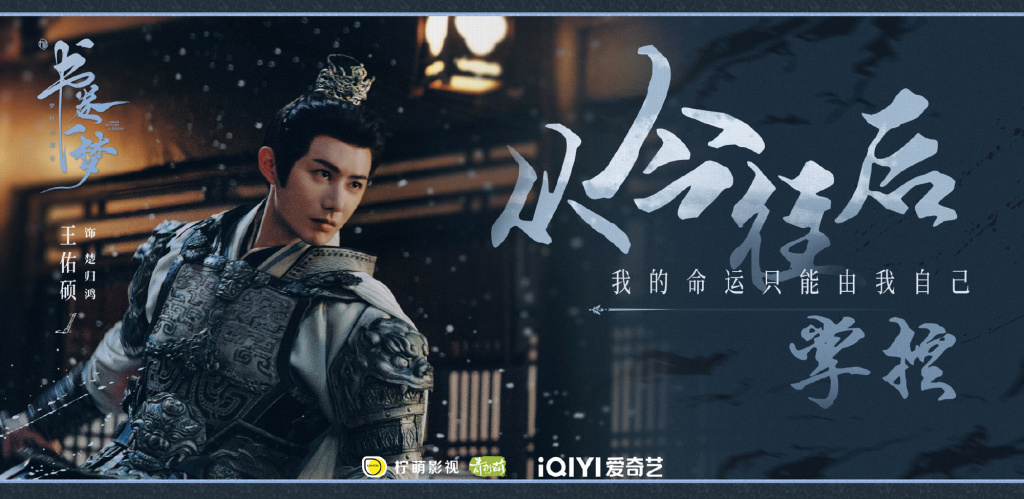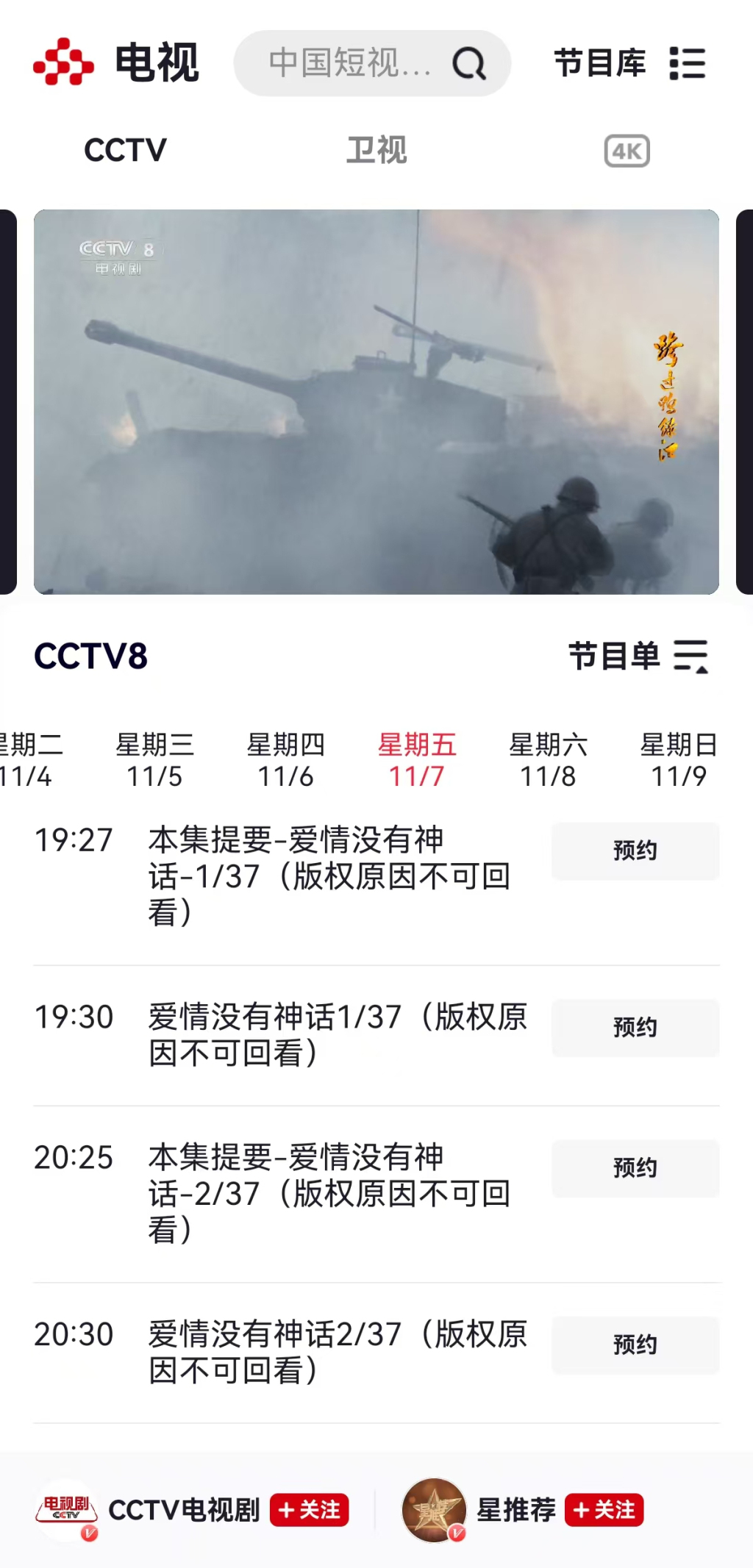
On July 11, the costume drama "A Dream of Books" directed by Guo Hu, written by Ren Zhuangliu and Charlotte, and starring Li Yitong and Liu Yuning, came to an end.
The play tells the story of Song Xiaoyu (played by Li Yitong), a 180-tier actress who accidentally travels into the world of a script and becomes the heroine Song Yimeng. She meets the seemingly "cruel and heartless" Nan Heng (played by Liu Yuning). Under the control of multiple script mechanisms, she tries again and again to change her fate, but cannot escape the famous scenes in the script.
I remember when I wrote the first episode , I lamented that this drama was very imaginative, the first few episodes were fast-paced, the plot was very unconventional, and it was very attractive. But as the plot progressed, the supporting roles became more and more repetitive and ineffective, while the male and female protagonists had very few scenes in each episode, and netizens even jokingly called it "The Return of Hong Zhuan that no one cares about."

The villain Chu Guihong also has the self-awakening of a paper man, but he went in the wrong way.
It was not until the final episodes that the inconspicuous supporting roles and extras in "A Dream in Books" awakened and began to defend their country against the villains, and only then did they regain the crazy and funny feeling of the first few episodes, and added the passionate group portrait feeling. Netizens also shouted: "Writer, I took back my sword" and "Books in Books has a tiger head and a dragon tail."
After watching this finale, the author, who loves this drama so much and is very critical of it, just wants to say: Dear screenwriter, if you had written it like this earlier, and the director had been more ruthless and cut the middle ten or so episodes, wouldn't this drama have been a success?
On June 26, the popularity of the drama exceeded 7687, setting a new record for the highest first-day broadcast of a drama on iQiyi in 2025. However, since July 6, when the popularity of the drama on iQiyi reached 9500, until the day of the finale, the popularity value remained in this range and failed to reach a higher level.

Maximum heat value 9500
"A Dream of Books" is a drama about traveling through time and space and about eliminating prejudice. It was clearly an anti-routine ancient idol drama from the beginning, so why did it start high and end flat? The author believes that there are three reasons.
First, it attracted a group of viewers by relying on a fast-paced, short-play narrative style at the beginning, but the pace slowed down in the middle, and there were too many repetitive and ineffective scenes, which drove away these vertical viewers. In the subsequent plot, there was a lack of out-of-the-box scenes to attract new viewers. Even if the male protagonist had a fan base with strong krypton gold ability and was willing to contribute to the cloud booking, it was ultimately difficult to save the situation.

A high-energy scene of a duo playing drums also appears in the middle, but unfortunately there are not many such scenes.
Secondly, because the play within a play "A Dream of Peace" is essentially a bad drama with no logic, although the male lead, the second female lead, and the third male lead, these paper people, have tried hard to wake up, change their destiny, and live a different life, the thinking of the female lead is instead influenced step by step by the mechanism of the script, and she gradually decreases from a living person to a paper person controlled by the screenwriter.

The script mechanism actually trapped the heroine in the middle stage.
From this perspective, the female lead Song Yimeng's character is not well designed, because her reasons for repeatedly rejecting and misunderstanding the male lead Nan Heng are really far-fetched. She fell in love with the male lead's second identity Li Shiliu, but rarely took the time to really understand the male lead's first identity Nan Heng. Some netizens even think that the second female lead Song Yiting's thinking and opinions are more like a modern person than the female lead.

Zhu Xudan as Song Yiting
In fact, the script could have been written as if the female protagonist used her intelligence in the middle of the story to quickly determine that the male protagonist was a person who was cold on the outside but warm on the inside, and began to resist the script mechanism. However, this resistance was not completed by the male protagonist until the "three people stabbed in circles at the wedding".
Of course, some people would say that the process of the heroine recognizing the hero is also one of the main themes of the play: prejudice kills people. The problem is that such a setting is also an old routine in the ancient puppet drama segment, and it is not novel at all. In addition, there are too many scenes in which Nan Heng is misunderstood by various people around him and is tortured. As the saying goes, when the water is full, it overflows. Every scene is abusing the male protagonist, abusing for the sake of abusing, but it loses balance and triggers the audience to rebel. The grasp of this sense of proportion is actually the same as the problem of Chu Guihong's blackening for the sake of blackening mentioned above.

The heroine's awakening and her change of opinion of the hero happened in the later stages of the plot.
I think the emotional performances of the two leading actors in the important scenes are above the standard. The problem is not that the actors' understanding is wrong, but that the script itself is not smooth in dealing with the emotions of the two people. This is also the problem that the author was worried about in the "first episode" at the beginning: Is the emotional advancement delicate and lifelike enough? Is there any underlying logic that conforms to the current audience's understanding?
Third, the complexity and freshness of character creation are also the key to the success of a series. In recent years, there are countless time-travel dramas, including "The Rumored Chen Qianqian" and "Eternal Night Star River", which are both popular and popular medium-length dramas, as well as short dramas with a strong female lead such as "Writing". "My fate is determined by me, not by God" and "I am the writer of my own life" are lines that the audience has long been familiar with. Even dramas that complain about ancient idols have precedents such as "Full Capital Group" with intensive output and constant explosions. The first few episodes of "A Dream of Books" also took advantage of the anti-routine advantage of complaining about ancient idols, but how to rely on the plot itself to keep the audience after complaining has become a problem that the screenwriter must solve.


The theme of changing destiny is good, but how to write it in an original way is a difficult point.
The author's feelings about this drama are somewhat complicated. If its middle part could enter the infinite flow again and again like the beginning and the end, and rely on intelligence and skills to awaken and resist again and again, and innovate in character setting and plot setting, it would have the potential to become a masterpiece. Unfortunately, "A Dream of Books" did not break away from the framework of many routine ancient idol dramas on the market in terms of narrative rhythm, emotional advancement, and character creation.
Raising a question is only the first step, solving the problem is the key. The same is true for criticizing ancient idol dramas. The screenwriters have extracted enough common problems and explosive materials for popular ancient idol dramas, but how to avoid falling into the routine of criticizing is the real question that ancient idol dramas should think about nowadays.


